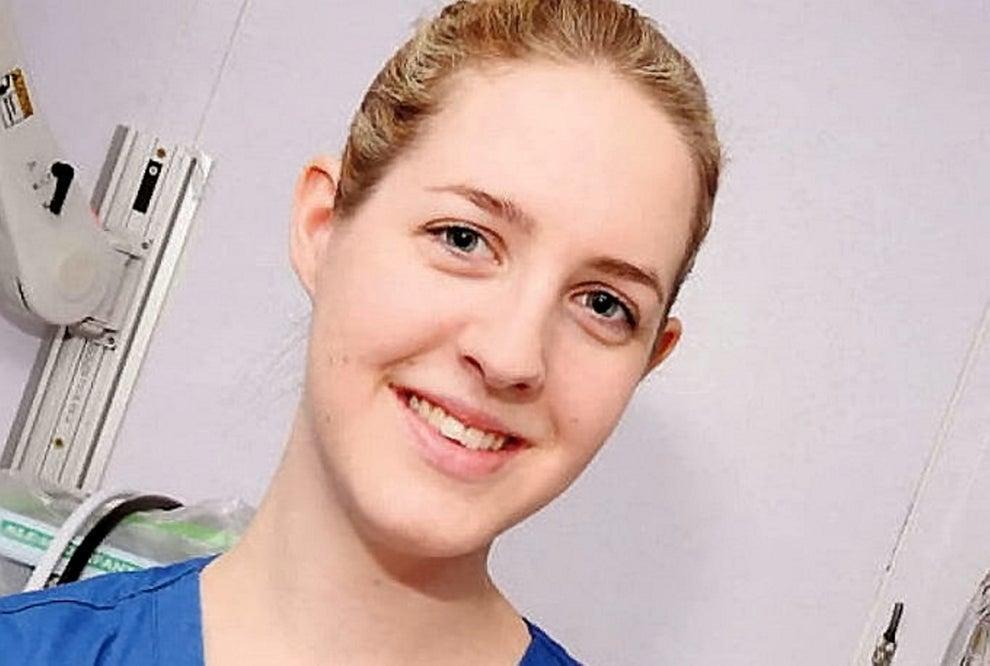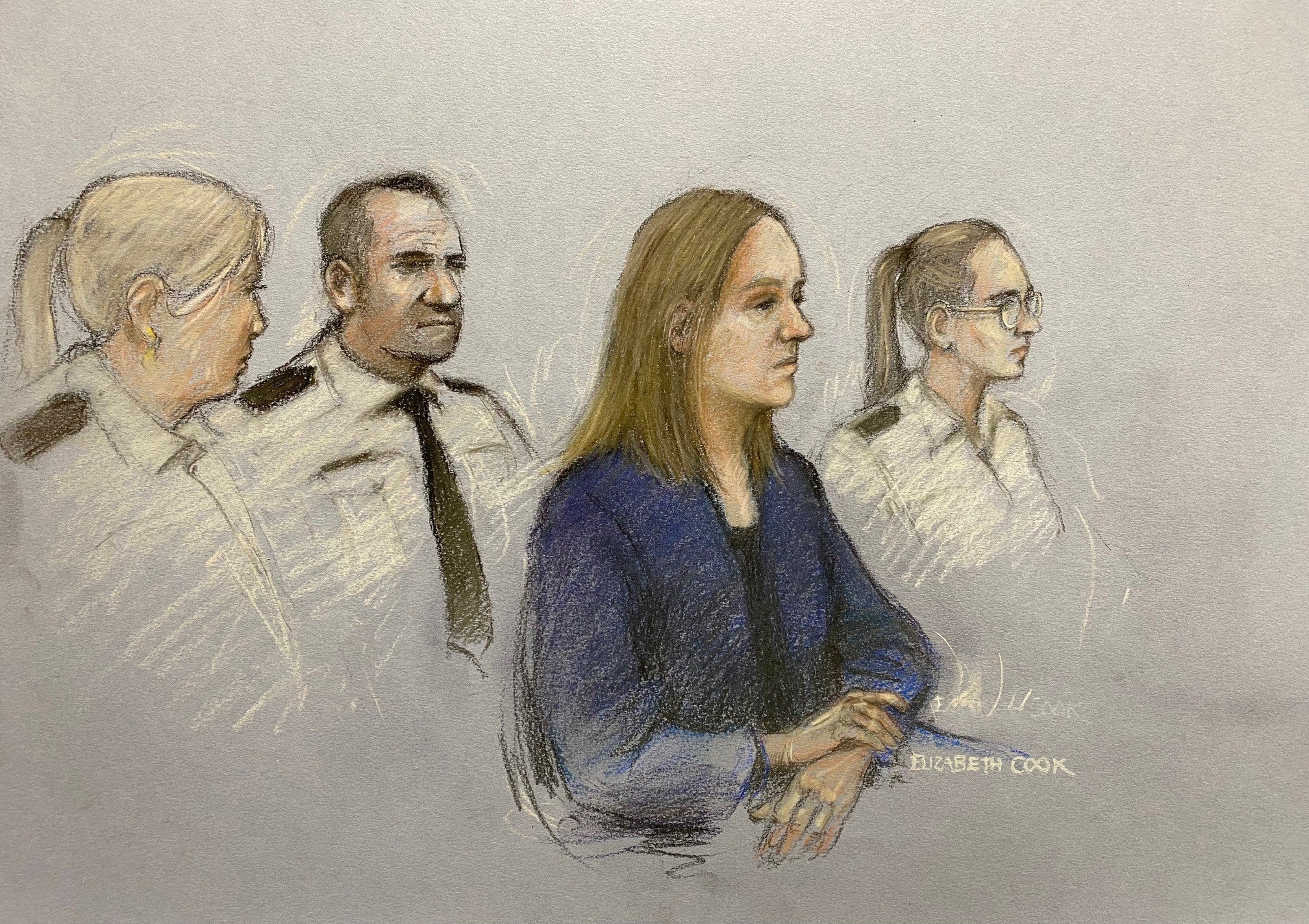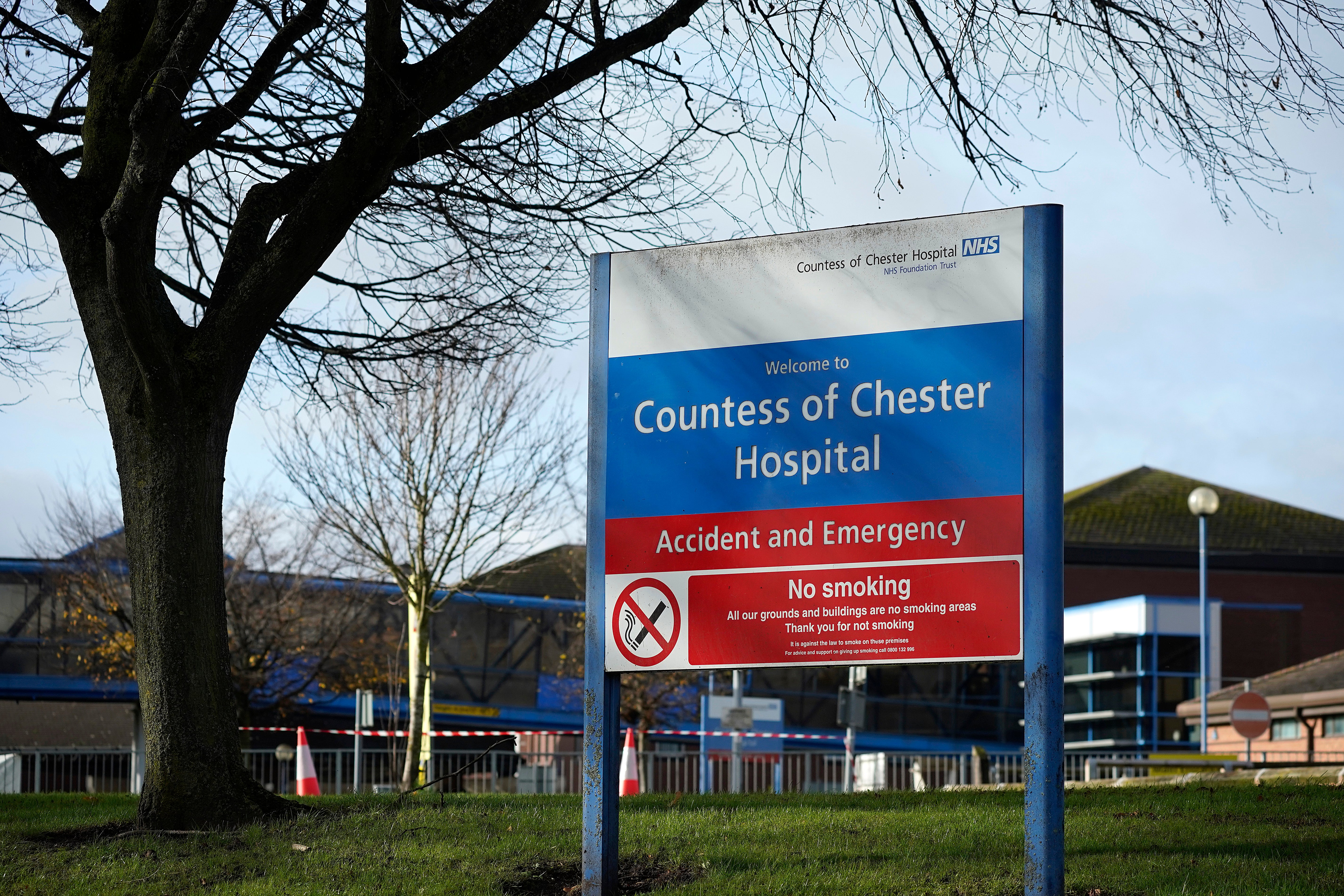Lucy Letby trial: ‘Poisoner’ neo-natal nurse accused of murdering 7 babies
Letby was working in the neonatal unit of the Countess of Chester Hospital in Chester at the time

A “poisoner was at work” at a hospital neo-natal unit where a nurse is accused of murdering seven babies and trying to kill 10 more during a year-long spree, a court has heard.
Lucy Letby – described as “the constant malevolent presence when things took a turn for the worse for these 17 children” – is accused of trying to murder some of the infants multiple times.
One of the babies is alleged to have been murdered at just one day old – pronounced dead within 90 minutes of Ms Letby coming on duty.
The 32-year-old nurse has denied murdering five boys and two girls and attempting to murder another five boys and five girls at the Countess of Chester Hospital between June 2015 and June 2016.
Sometimes babies were allegedly injected with air while on other occasions they were fed insulin or too much milk. Two babies allegedly poisoned with insulin survived.
Opening the prosecution case on Monday at Manchester Crown Court, Nick Johnson KC said there were “varying means by which these babies were attacked but the constant presence, when they were fatally attacked or collapsed catastrophically, was Lucy Letby”.

Mr Johnson told jurors that the Countess of Chester Hospital was a “busy general hospital” which included a neo-natal unit that cared for premature and sick babies.
“It is a hospital like so many others in the UK, but unlike many other hospitals in the UK and unlike many other neonatal units in the UK, within the neonatal unit at the Countess of Chester Hospital a poisoner was at work,” he said.
“Prior to January 2015, the statistics for the mortality of babies in the neonatal unit at the Countess of Chester were comparable to other like units.
“However over the next 18 months or so there was a significant rise in the number of babies who were dying and in the number of serious catastrophic collapses.”
An investigation was launched but when a cause could not be found, consultants noticed that the inexplicable collapses and deaths had “one common denominator”.
“The presence of one of the neonatal nurses and that nurse was Lucy Letby,” the court heard.
Mr Johnson told jurors that at the relevant time the number of nursing staff at the Countess of Chester’s neonatal unit was between 25 and 30 nurses, along with about 15 nursery nurses.

Mr Johnson continued: “Many of the events in this case occurred on the night shifts. When upon Lucy Letby was moved on to day shifts, the collapses and deaths moved to the day shifts.”
When medics could not account for the collapses and deaths, police were called in and conducted a “painstaking review”, Mr Johnson said.
He said: “That review suggests that in the period between mid-2015 and the middle of 2016, somebody in the neonatal unit poisoned two children with insulin.
"The prosecution say that the only reasonable conclusion to be drawn from the evidence you will hear is that somebody poisoned these babies deliberately with insulin. This was no accident.
“If we are right about that, the fact that there were two deliberate poisonings will help you when you are assessing whether the collapses and deaths of other children on the neonatal unit were because someone was sabotaging them or whether these were just a tragic coincidence.”
The collapses and deaths of all 17 children concerned were not “naturally occurring tragedies”, Mr Johnson said. "They were all the work, we say, of the woman in the dock, who we say was the constant malevolent presence when things took a turn for the worse for these 17 children."
Mr Johnson said the two children allegedly poisoned with insulin days after they were born, who cannot be identified, were two baby boys, from separate sets of twins; the first, born in summer 2015, and the other, in spring 2016.
“Letby was on duty when both were poisoned and we allege she was the poisoner,” Mr Johnson said. “There’s a very restricted number of people who could have been the poisoner, because entry to a neonatal unit is closely restricted.”
In the case of the two babies – identified only as child F and child L – their blood sugar levels dropped to dangerous levels. But both survived due to the skill of medical staff who appreciated low blood sugar can have natural causes.
Mr Johnson added: “What the medical staff did not realise was that in both cases [it] was the result of someone poisoning them with insulin.”
Both babies each had a baby brother, child E and child M, who were also allegedly attacked by Letby. The court heard child E died and child M was harmed after having air injected into the bloodstream.
Johnson described the case as “complicated”, telling jurors: “It concerns seven allegations of murder and allegations of attempted murder of 10 other children.
"We allege that sometimes Lucy Letby tried to kill the same baby more than once.”
Child subjected to ‘some form of sabotage’
Child A, a baby boy, was the first to be attacked and murdered at just a day old, on 8 June 2015. The baby was born just a minute behind his twin sister at 8.31pm the previous day.
He was born early, via caesarean section, at 31 weeks, and admitted to the intensive care room at the neo-natal unit. He was in good condition and by the following morning was breathing without extra oxygen and was given expressed breast milk.
Letby came on to work on the night shift at 7.30pm and became his designated nurse at 8.26pm. She called a doctor and on-call consultant who noted an “odd discolouration” on the boy’s skin, with patches of pink over blue skin that appeared and disappeared. Mr Johnson said this became a “hallmark” of some of the cases in which it is alleged Letby had injected air into the bloodstream of a victim.
Despite resuscitation attempts, child A was pronounced dead at 8.58pm, within 90 minutes of Letby coming on duty.
Four medical experts reviewed the case, with the first saying child A was a “well infant” before his death. The fatal event was, he said, consistent with a deliberate injection of air or something else into the boy’s circulation a minute or two before his collapse.
A second expert said child A’s collapse was not a natural event, adding that the "most likely reason" was air administered deliberately, “by someone who knew it would cause significant harm”. A pathologist concluded it would be reasonable to conclude that air in child A’s circulation was most likely caused by air administration through one of two tubes already attached to the baby’s body.
It is alleged that Letby tried to kill child B, the twin sister of child A, at about midnight on 9 June 2015. The court heard that child B required some resuscitation at birth on 7 June but recovered quickly and stabilised. But shortly before midnight, her blood/oxygen levels fell and nasal prongs providing additional oxygen had been dislodged.
At about 12.30am the child’s alarm monitor sounded as the baby was seen to be blue in colour, was not breathing and was limp. An on-call registrar was alerted and the child recovered quickly once resuscitated, Mr Johnson said. The prosecutor said that “mercifully” child B does not appear to have suffered any adverse consequences.
Mr Johnson said an expert paediatrician, who reviewed the case, concluded child B was subjected to “some form of sabotage” and may have been injected with a dose of air.
Earlier on Monday, wearing a blue jacket over a black shirt, Letby, originally from Hereford but who was living in Chester prior to her arrest, stood in the dock and replied “not guilty” as each of the 22 charges – seven counts of murder and 15 of attempted murder – were read out to her.
Family members of some of her alleged victims sat in the public gallery listening as the names of the children were read out. On the other side of the public gallery sat the defendant’s parents, John, 76, and Susan, 62.
A court order prohibits the reporting of the identities of surviving and deceased children allegedly attacked by Letby, and prohibits identifying parents or witnesses connected with the children.
The trial continues.
Press Association contributed to this report
